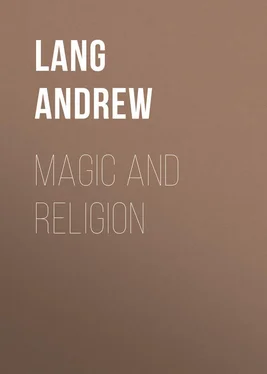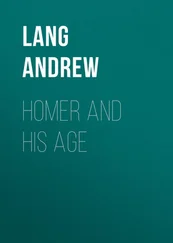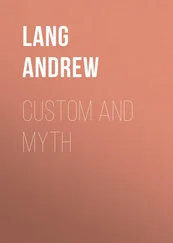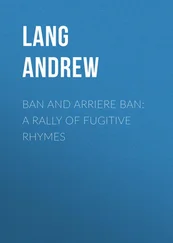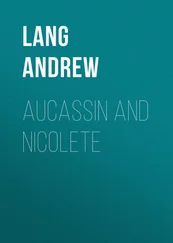Andrew Lang - Magic and Religion
Здесь есть возможность читать онлайн «Andrew Lang - Magic and Religion» — ознакомительный отрывок электронной книги совершенно бесплатно, а после прочтения отрывка купить полную версию. В некоторых случаях можно слушать аудио, скачать через торрент в формате fb2 и присутствует краткое содержание. Жанр: foreign_antique, foreign_prose, на английском языке. Описание произведения, (предисловие) а так же отзывы посетителей доступны на портале библиотеки ЛибКат.
- Название:Magic and Religion
- Автор:
- Жанр:
- Год:неизвестен
- ISBN:нет данных
- Рейтинг книги:4 / 5. Голосов: 1
-
Избранное:Добавить в избранное
- Отзывы:
-
Ваша оценка:
- 80
- 1
- 2
- 3
- 4
- 5
Magic and Religion: краткое содержание, описание и аннотация
Предлагаем к чтению аннотацию, описание, краткое содержание или предисловие (зависит от того, что написал сам автор книги «Magic and Religion»). Если вы не нашли необходимую информацию о книге — напишите в комментариях, мы постараемся отыскать её.
Magic and Religion — читать онлайн ознакомительный отрывок
Ниже представлен текст книги, разбитый по страницам. Система сохранения места последней прочитанной страницы, позволяет с удобством читать онлайн бесплатно книгу «Magic and Religion», без необходимости каждый раз заново искать на чём Вы остановились. Поставьте закладку, и сможете в любой момент перейти на страницу, на которой закончили чтение.
Интервал:
Закладка:
We may quote Sir Alfred Lyall: 'One effect of the accumulation of materials has been to encourage speculative generalisations, because it has provided a repertory out of which one may make arbitrary selection of examples and precedents to suit any theory.' Has Mr. Frazer escaped this error?
I cannot think that he has escaped, and the error is fatal. He cites Mr. Howitt, Mr. Palmer, Mr. Oldfield, Mr. Dawson, and Mr. Cameron (whom I am about to quote), all of whom speak to a native religion of the kind for which I contend. Their witness is enough for him in other matters, but as to this matter these witnesses, for some reason, are absolutely ignored. I myself have omitted the affirmative evidence of Mr. Oldfield and Mr. Foelsche as to religion, because I think it contaminated, although in part corroborated. But my witnesses, all cited for other points by Mr. Frazer, are not even mentioned on the point where, if their reports be correct, they seem rather to invalidate his central theory – that religion was invented in the despair of magic.
As to that despair, it does not exist. The religions of Babylon, Greece, and Egypt lived side by side with superabundant magic. The Australians, when their magic fails, merely say that some other black fellow is working stronger counter-magic. 72 72 J. A. I . xv. 4.
However, that is a different question. The question at present is, Why does Mr. Frazer not cite and confute the evidence of witnesses, whom he quotes on other points, evidence fatal to his theory? Why does he ignore it? Among so many witnesses, distrustful of facts that surprise them, anxious to explain by borrowing, all cannot be biassed. If they were, why is not the testimony of witnesses with the opposite bias also discredited or ignored? Why is it welcomed? Mr. Frazer prefers the opinion of Mr. Siebert, a German missionary, that the Dieri propitiate ancestral spirits, to the opinion of Mr. Gason, that the being of their belief is a good spirit who made them. I do not know which of these gentlemen is right; possibly both views are held by different native informants. But Mr. Siebert's ancestral spirits come through Mr. Fison, who says: 'The more I learn about savage tribes, the more I am convinced that among them ancestors grow into Gods ' – so natural a process where the names of the dead are tabooed!
'Oh no, we never mention them,
Their names are never heard.'
So they grow into gods! Mr. Fison is a Spencerian; so, for all that I know, may Mr. Siebert be. If so, both have a theory and a bias, yet they are cited. It is only witnesses who hold that the Australians, certainly not, as a rule, ancestor worshippers, believe in a kind of god, who are not deemed worthy of mention on this point, though quite trustworthy on other points.
I cannot understand this method. The historian has a theory. He searches for contradictory facts. The chemist or biologist does not fail to mention facts hostile to his theory.
We are not asking Mr. Frazer to accept the testimony of Mr. Howitt, Mr. Cameron, Mr. Ridley, Mr. Greenway, Mr. Gason, Mr. Hale, Archdeacon Günther, the Benedictines of Nursia, Mr. Dawson, Mr. Eyre, Mr. Roth, Mrs. Langloh Parker; or to accept the opinion of Waitz, Mr. Howitt, and others as to unborrowed Australian religion. Their testimony may be erroneous; when it is proved erroneous I shall abandon it. But perhaps anthropologists may be allowed to be curious as to the reasons for which this and similar testimony is ignored. The reason cannot be that there is contradictory evidence, for some observers deny magic to the tribes whom they know. 73 73 To be true to my own principles, I note a few points in Mr. Frazer's Australian evidence, published by him in J. A. I ., November 1894. Mr. Gason, an excellent witness, says that the Dieri think some souls turn into old trees or rocks, or 'as breath ascend to the heavens,' to 'Purriewillpanina.' The Dieri believe the Mooramoora created them and will look after their spirits ( op. cit . p. 175). Mr. Frazer, however, calls the Mura Mura 'remote ancestral spirits,' who would have a difficulty, one thinks, in creating the Dieri. The names of the dead may not be mentioned (p. 176). The station master at Powell's Creek denies that magic 'exists in any shape or form.' There are no religious dances, no belief in a future life (p. 180). Mr. Lindsay Crawford says 'nothing is known of the nature of souls.' For the last ten years this gentleman 'had held no communication with the natives at all, except with the rifle.' Perhaps his negative evidence is not very valuable, as he does not appear to have won the friendly confidence of the blacks. Mr. Matthews says: 'Many tribes believe future existence is regulated by due observances at burial according to the rites of the tribe' (p. 190). Mr. Foelsche, described by Dr. Stirling as 'a most intelligent and accurate observer, who knows the natives well,' contributes a belief in a benevolent creator, with a demiurge who made the blacks. He inhabits Teelahdlah, among the stars. 'He never dies.' He is 'a very good man,' not a 'spirit.' A subterranean being 'can read and write, and keeps a book' of men's actions. This is so manifestly due to European influence that I have not cited Mr. Foelsche's evidence. Mr. Foelsche 'knows of no magic or witchcraft being practised' (p. 197). The blacks believe that after death their souls 'go up'; they then point skywards (p. 198).
Yet Mr. Frazer has no doubt as to the prevalence of magic, though one of his witnesses, Mr. Foelsche, gives no magic, but gives religion. 'Whether viewed as gods or devils,' Mr. Frazer says of South-East Australian beings, 'it does not seem that these spirits were ever worshipped.' He has ignored the evidence that they are worshipped (if the rights of the Bora are worship), but, if they are not worshipped, so much the worse for his theory. Gods, in his theory, were invented just to be worshipped. 'To these mighty beings… man now addressed himself… beseeching them of their mercy to furnish him with all good things…' 74 74 G.B. i. 72 note i. 77.
As against the correctness of my witnesses I only know the mass of evidence by white observers who have detected no religion among these savages. But I do not necessarily accept the negative evidence, because the beliefs are reported, by the affirmative witnesses, to be guarded with the utmost secrecy. 75 75 See 'The Theory of Loan Gods.'
It is not every inquirer who has the power of eliciting beliefs which, for many reasons, are jealously guarded. Many Englishmen or Lowlanders are unable to extract legends of fairies, ghosts, and second-sight from Gaelic Highlanders. On the other hand, they are kind enough to communicate to me plenty of their folk-lore. 'The Urkus were very shy and frightened when asked about their religion,' says Mr. Pope Hennessy in his 'Notes on the Jukos and other Tribes of the Middle Benæ' (1898). 76 76 J. A. I . January to June, 1900, No. 31, p. 27.
Thus I prefer the affirmative evidence of Europeans who have won the confidence of the Australians, and have been initiated, to the denials of observers less fortunate. As for their theory that the religious practices, if they exist, are borrowed from Christians, I have stated my case in the preceding essay. There could be no stronger evidence than the absence of prayer that the Australian religion is not borrowed.
This argument ought especially to appeal to Mr. Frazer. His definition of religion is that of Euthyphro, in the Platonic Dialogue of that name.
Socrates . Sacrificing is giving to the Gods, and piety is asking from them?
Euthyphro . Yes, Socrates.
Socrates . Upon this view, then, piety is a science of asking and giving?
Euthyphro . You understand me capitally, Socrates.
Читать дальшеИнтервал:
Закладка:
Похожие книги на «Magic and Religion»
Представляем Вашему вниманию похожие книги на «Magic and Religion» списком для выбора. Мы отобрали схожую по названию и смыслу литературу в надежде предоставить читателям больше вариантов отыскать новые, интересные, ещё непрочитанные произведения.
Обсуждение, отзывы о книге «Magic and Religion» и просто собственные мнения читателей. Оставьте ваши комментарии, напишите, что Вы думаете о произведении, его смысле или главных героях. Укажите что конкретно понравилось, а что нет, и почему Вы так считаете.
